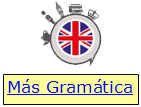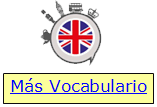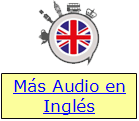|
You and I, you and me – afterwards,
after all – who, whom, whose
I wanted to ask you a couple of
questions.
What’s the difference between, ” After all ” and ” afterwards” ‘ For
example: “We are not good chefs, but after all, the food wasn’t that
bad.”
“We had to study last night, but afterwards we went out for a few
beers.”
‘Afterwards’ is a time expression. It refers to time.
‘After all’ is more than a time expression:
“I thought I was lost, but I was going the right way after all.”
“Let me help you. After all, you always help me.” (por lo menos)
“After all is said and done.” – al fin y al cabo, a fin de cuentas
“After all the trouble she’s caused me, I still love Berta.” (despues de
todo)
“We had lunch. Afterwards, John went home.”
¡OJO! It’s not correct to say, X”We had lunch. After, John went home.“X
– You should say, “We had lunch. After that, John went home.”
“After” is a preposition and needs to go with another word.
Whom, who or whose?
“To Whom It May Concern” – Use this expression at the beginning of
formal emails, letters, references etc. when you do not know who you
should address it to, or if it will be read by various people in the
future.
(Note: Use “Dear Sir/Madam” “in formal emails/letters when you do not
know the name of the person you are writing to.)
whose = de quién
Whom is mainly used in formal English (especially in written English).
Whom can only be for objects, it cannot be for subjects.
“Are you the gentleman WHOM I met earlier?” (‘Whom’ is the object, ‘I’
is the subject). This is not common spoken English. It’s more common to
use ‘who’, not ‘whom’ in modern spoken English.
When it’s an indirect object, with a preposition, use ‘whom’.
“For Whom the Bells Toll” by Ernest Hemingway
“With Whom are you going out tonight?”
Use WHOM (with an ‘M’) if the answer is HIM. – “Whom do you love?” – “I
love him.” (No se dice, X“I love he.”X)
“Is it posible to use the verbs ‘fancy , feel like’ as past verbs tense?
Yes, it is! – “I fancied a pizza so we went out for dinner.”
“I felt like having a pizza.”
Find a teacher and improve your speaking with italki
Find a teacher and improve your speaking with italki
A question from Armando
Hello, Reza and Craig. I want to thank you for creating these podcasts
every week. I am from Colombia and recently I became a patron to support
your great labor (work).
I really hope that many people can join us because together we can
achieve the aim of having written transcriptions for every episode.
Would you mind helping me with this question?
I have been studying how to create questions with the following words:
How, what, which, where, when, among others, but I can’t understand or
identify the structure for these sentences and when I need to use these
auxiliary verbs:
do / does / did / have / has / etc
I know the auxiliary ‘do’ is for I / you / we / they in the present
simple, and ‘does’ for he / she / it. But it is not clear for me when I
need to put the auxiliary in the question and when not to. For example:
What time do you usually have breakfast?
How many people live in this house? (this question does not have any
auxiliary)
How much is this bunch of white roses?
How often do you visit your parents?
When the question word is an object, use an auxiliary verb:
+ I eat rice. (positive form)
– I don’t eat rice. (negative form)
? Do I eat rice? (question form)
“How many people live in this house? (“How many” is the subject, not the
object)
“Who did you help?” – “I helped John.” – “Who (object) did you (subject)
help?” – “I helped John (object).”
“Who helped you?” – “Who (subject) helped you (object)?”
“How many eggs did you buy?” (auxiliary verb)
“How many cars arrived?” (no auxiliary verb)
“Whose car is this?” – The verb TO BE never uses an auxiliary verb.
“How long ago did my mother arrive?” My mother is the subject – you need
an auxiliary verb.
“Where do you work?” – ‘You’ is the subject of the question, so you need
an auxiliary verb
I do not understand why these sentences use the verb ‘likes’ with ‘s’
instead of ‘like’ without s:
“Craig likes chocolate.” – ‘like’ has an ‘s’ because it’s a 3rd person
statement in the present simple tense.
“Does Craig like chocolate?” – this is a question with does, so there is
no ‘s’ in the present simple.
The auxiliary verbs ‘do’, ‘does’, ‘don’t’ are followed by the infinitive
without ‘to’.
Isabel from Brazil: “You and me” or “You and I”?
‘I’ is a subject pronoun and ‘me’ is an object pronoun.
“I love you” is correct. X”Me love you.”X is not correct.
“She loves me.” (‘me’ is the object)
“You and me do the podcast together.” (‘you and me’ are both subjects)
“Reza and I love podcasting.” (‘Reza and I’ are both subjects)
“Reza and me will have a pint of lager.”
“Reza and I will have a pint of lager.”
Both the above sentences are correct. “Reza and I” is more common in
formal and written English. “Reza and me”, “You and me” etc is more
common in spoken and informally written English.
 *Dispones
de más
PODCAST en inglés publicados en los cuadernos anteriores *Dispones
de más
PODCAST en inglés publicados en los cuadernos anteriores
a los que puedes acceder directamente así como al índice de su
contenido. |
|
|
